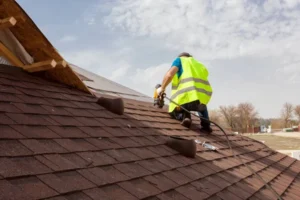
Real estate investors are always on the lookout for the next great opportunity. When it comes to searching for 1031 exchange properties for sale, having a basic understanding of the process will ensure you get the best deal possible. This article outlines what exactly you need to know to make sure you are getting the most value out of your purchase. You’ll also learn where and how to find potential commercial property exchange that will increase your investment earnings.
What Are 1031 Exchanges Properties
The Tax Deferred Exchange, or 1031 Exchange Properties for short, is a method in which one business or investment property can be sold to buy another without paying capital gains taxes. This is where a company or person could exchange their property built for business for another “like-kind” investment/business property. All proceeds from the sale must be used to purchase the replacement property. Any cash left over after purchase is considered “boot” and is taxable. The Seller must also use a Qualified Intermediary (QI) to facilitate the exchange. The QI holds the sales proceeds until they are used to purchase the replacement property.
Key Factors To Consider When Looking for 1031 Exchange Properties
Your search for 1031 exchange properties for sale should be based on wide-ranging criteria instead of the whims of the moment. These are decisions that have long-term ramifications and not quick ones. Here are some key factors you should take into consideration:
Know the Rules
In order to meet the requirements of tax-deferred 1031 investment properties, investors will generally look for a property that they can exchange into under the following rules:
Business Use Tests
For a real estate transaction to qualify as a tax-free exchange, both properties—both new and old—must pass the test of being used in a business or for investment.
1031 Exchange 45-Day Timing Rule
The 1031 Exchange 45-Day Rule provides that the replacement property must be identified within 45 days of the sale of the initial property.
1031 Exchange 180-Day Exchange Period
Under section 1031 of the Internal Revenue Code, the “exchange period” is the time between when an individual relinquishes property and receives a replacement property. You must complete the sale of the new property within 180 days of the selling of the old property.
If any of these conditions are not met, the sale will not be considered a valid 1031 exchange, and the taxpayer will be liable for any capital gains taxes that are due.
Identification Rules:
- 3 Property Identification Rule which allows property exchange dealers to identify a maximum of three (3) like-kind properties regardless of the property value.
- 200 percent of the Fair Market Value Identification Rule which is perfect for investors who want to expand their investment portfolio. This rule allows investors to identify beyond three potential properties as long as the overall fair market value is not above 200% of the total net sales value of the 1021 exchange property.
- The 95 percent Identification Exception Rule allows investors to acquire properties as long as the total cost (more than three properties or above 200 percent of the property value) is equivalent to 95 percent of the purchased property.
Hiring 1031 exchange brokers will provide 1031 investors with guidance and support throughout the 1031 property exchange process. They are experts in 1031 compliance and can help ensure that your 1031 property exchange is successfully completed.
Create a List of Potential Properties
1031 property exchange listings offer a vital resource for both buyers and sellers of investment property. They can be found online, in newspapers, and through real estate brokers. However, the most comprehensive list of 1031 properties for sale is typically maintained by 1031 exchange companies which often have access to a greater variety of properties. As such, they can be an invaluable resource for anyone interested in 1031 property exchanges.
Location. Location is always important, and you’ll want to find a property that is in a desirable area. Additionally, you’ll need to make sure the property is zoned for commercial use. You’ll also want to take into account the condition of the property and its potential redevelopment value. By considering these factors, you can find a property that will meet all your needs and help you avoid any costly surprises down the road.
Condition and value of the property. It is important to ensure that the property must be in “like-kind” and in good condition as it was when the original exchange took place. This means that it must be free of any major defects or damage. Any improvements or repairs that have been made to the property since the exchange cannot be deducted from the sale price. In addition, the property must be sold for at least its fair market value. If you sell the property for less than its fair market value, you may be subject to capital gains taxes. Therefore, it is important to make sure that the property you are selling is in good condition and is being sold for a fair price in order to qualify for a 1031 exchange.
Understand the Risks
One of the biggest risks of a 1031 exchange is that it can be difficult to find a replacement property that meets all of the requirements, and the rules on timing and identification. This can be challenging for investors who are trying to find the right property in a hot market. Additionally, the IRS has strict rules about how the proceeds from the sale must be used in order to qualify for the exchange. If these rules are not followed correctly, the investor could end up owing taxes on the sale after all.
Another risk to consider is that 1031 exchanges are often complex transactions that require the help of experienced professionals. it is important to consult with a qualified tax advisor before entering into a 1031 property exchange. This will ensure that you understand all of the rules and regulations involved in this type of transaction.
Takeaway
A 1031 exchange is a valuable tax planning strategy that can be utilized to meet the needs of business owners who are hoping to purchase new properties in exchange for the sale of other properties that have already been established. While it may seem like a daunting process, 1031 exchange is a useful option to consider to defer capital gain taxes. The above-mentioned factors, IRS rules, and requirements should be taken into consideration before one decides to invest in 1031 Exchange Property.









